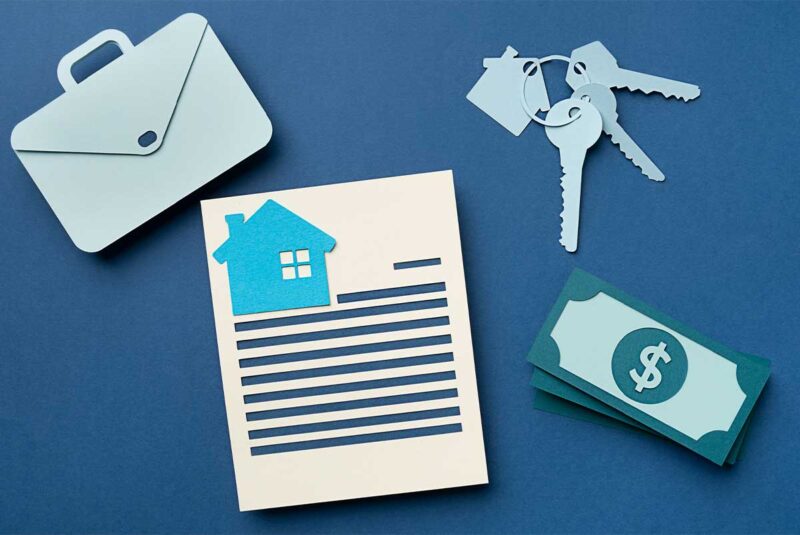Ready To Buy a Home?
Get Approved to Buy a Home
Rocket Mortgage® lets you get to house hunting sooner.
If you’re in the market to buy a house, you’ll want to know everything there is to know about first-time home buyer tax credits and grant programs – including a bill awaiting congressional approval – the First-Time Homebuyer Act of 2021.[1]
The First-Time Homebuyer Act of 2021 promises qualifying home buyers a $15,000 tax credit to purchase a home.[1]
While the bill works its way through Congress, there are other incentives qualified first-time home buyers can take advantage of – like other federal and state tax credits, grants and more – that could potentially save you hundreds, if not thousands, of dollars.
What’s a First-Time Home Buyer Tax Credit?
Explore Your Mortgage Options
What are you looking to do?
A first-time home buyer tax credit is a government program that gives first-time home buyers a break on their income taxes. Federal, state and local housing tax credits are home buyer incentives that help make homeownership accessible and affordable.
Federal first-time home buyer tax credits aren’t a new phenomenon. They’ve been around since the 2000s. The first home buyer credit program was the 2008 First-Time Homebuyer Credit.[2]
What’s the 2008 First-Time Homebuyer Credit?
In 2006 and 2007, a housing bubble developed in the U.S. In 2008, the housing market bubble burst, leading to the Great Recession, which had long-term consequences for the U.S. economy and the banking sector. In the wake of the recession, lenders tightened the criteria to qualify for mortgages. And many potential buyers found it harder to qualify for home loans.
The U.S. government introduced first-time home buyer tax credit programs to revitalize the economy after the housing bubble burst in 2008, including the 2008 Housing and Economic Recovery Act (HERA). The goal was to revitalize the American economy and encourage people to buy homes.[2]
Qualified buyers who closed on properties between April 8, 2008, and January 1, 2009, could get the temporary tax credit, which worked as an interest-free loan.[2]
Home buyers could get a maximum credit of $7,500 and had 15 years to repay the credit on their federal income tax returns. (If you got $7,500 in 2009, you’d pay back $500 on your tax returns from 2010 to 2025.)[3]
In 2009, HERA was modified under the American Recovery and Reinvestment Act. This time, qualified first-time home buyers got a tax credit of up to $8,000 – but they didn’t have to pay it back.[4]
The tax credit program, which ended in 2010, is no longer available to first-time home buyers. But the First-Time Homebuyer Act of 2021 builds off the federal government’s legislative legacy of supporting first-time home buyers.
What’s the 2021 First-Time Homebuyer Act?
U.S. lawmakers introduced the First-Time Homebuyer Act in April 2021. The bill supports a key campaign promise of President Biden to address the housing affordability crisis.[5]
The bill, which has not been enacted, proposes a tax credit worth up to 10% of a home’s purchase price or $15,000 max. The credit would apply to all home purchases beginning January 1, 2021, and may even work retroactively for homes bought in 2020.[5]
If you qualify, the tax credit will lower what you owe in federal taxes. If you’re married but file taxes separately from your partner, each of you can claim half the total credit amount you qualify for.
Who would qualify for the 2021 First-Time Homebuyer Tax Credit?
Here are the requirements eligible home buyers must meet under the proposed bill[5]:
- You must be 18 or older (or married to someone who is) on the date of purchase.
- You must be a first-time home buyer or haven’t owned a home or co-signed a mortgage in the last 3 years. (This includes primary residences, second homes and vacation properties.)
- You can only use the tax credit once.
- You can’t earn more than 60% of the median income in your area. Exceptions are made for households with multiple income earners – this applies to married and unmarried joint filers.
- You can’t buy a home from a relative. You can’t buy a home from your spouse, parent, grandparent, child, aunt, cousin, uncle … you get the picture.
Still not sure if you’re eligible? Talk to a lender like our vetted recommendation:
Do I have to pay the tax credit back?
Breaking the rules of the program can mean repaying all or part of the tax credit. The biggest taboo is moving or selling your home too soon. So, if you plan on flipping a house, this tax credit isn’t for you.[1]
The program is designed to help low- to moderate-income home buyers buy homes and close the home affordability gap. It’s not geared toward investors. If you sell or move within 4 years of buying the home, you’ll have to pay back a percentage of the tax credit[5]:
- Within 1 year: Repay 100%
- Within 2 years: Repay 75%
- Within 3 years: Repay 50%
- Within 4 years: Repay 25%
What is the Downpayment Toward Equity Act?
The Downpayment Toward Equity Act of 2021 hasn’t been passed yet, but you should make it your business to know what it is.
The proposed bill, which was also introduced in April 2021, would issue $25,000 grants to qualifying first-time home buyers to apply toward[6]:
- Down payments
- Real estate closing costs
- Mortgage interest rate reductions
- Other related home purchase expenses
While the First-Time Homebuyer Act and the Downpayment Toward Equity Act work differently, if passed, first-time home buyers could potentially qualify for both of them, adding up to a total of $40,000 in cash and tax credits.
When Will the 2021 First-Time Homebuyer Act Become Law?
Congress hasn’t passed the First-Time Homebuyer Act. But aspiring homeowners have lots of existing local and state-wide programs to choose from that offer first-time home buyer grants and tax credits.
Many states offer 0% interest loans or grants to help with down payments or other related home purchasing costs. Some research into your state’s programs could save you thousands of dollars, so it’s worth starting now.
Can You Deduct Anything After Buying a Home?
There are tax benefits you can take advantage of after you buy a home. There are tax write-offs available to homeowners even if the home is not their first home.
- Property tax deduction: Depending on which state you live in, you may be able to claim some state or local tax deductions on your federal income tax return.
- Mortgage points deduction: When you pay down points to reduce your interest on a mortgage, you can deduct this expense on your tax return, but only for the year you purchased them.
- Mortgage interest deduction: Mortgage interest paid on loans used to improve, build or buy a home can be deducted from your federal income tax return.[7]
What Other First-Time Home Buyer Options Exist?
There is no shortage of assistance for first-time home buyers.
- The Department of Housing and Urban Development offers a host of grant and loan options.
- The Federal Housing Administration (FHA), Department of Veterans Affairs (VA), Fannie Mae and Freddie Mac offer low and 0% down payment loan programs.
- You may be eligible for a mortgage credit certificate or other down payment assistance programs offered by your state’s housing finance agency.
- If you have a Roth IRA, you can take out $10,000 to use toward the purchase of your first home. For first-time home buyers, the withdrawal is tax-free and penalty-free if your account contributions were made more than 5 years ago.
Seek and Ye Shall Find
When it comes to finding cash, grants or tax credits to buy your first home, seek – and if ye qualify – ye shall find. Do your research and stay on the paths that can help guide you to the front steps of your first home.
Take the first step toward buying a home.
Get approved. See what you qualify for. Start house hunting.
The Short Version
- The First-Time Home Buyer Act of 2021 promises qualifying home buyers a $15,000 tax credit to purchase a home[1]
- The U.S. government introduced first-time home buyer tax credit programs to revitalize the economy after the housing bubble burst in 2008[2]
- Federal, state and local housing tax credits are home buyer incentives that help make homeownership accessible and affordable
Congress.gov. “H.R. 2863 – First Time Homebuyer Act of 2021.” Retrieved July 2022 from https://www.congress.gov/bill/117th-congress/house-bill/2863/text
Congress.gov. “HOUSING AND ECONOMIC RECOVERY ACT OF 2008.” Retrieved July 2022 from https://www.congress.gov/110/plaws/publ289/PLAW-110publ289.pdf
IRS. “Instructions for Form 5405 (Rev. November 2021) Repayment of the First-Time Homebuyer Credit.” Retrieved July 2022 from https://www.irs.gov/pub/irs-pdf/i5405.pdf
Congress.gov. “Text – H.R.1 – 111th Congress (2009-2010): American Recovery and Reinvestment Act of 2009.” Retrieved July 2022 from https://www.congress.gov/bill/111th-congress/house-bill/1/text
JoeBiden.com. “The Biden Plan for Investing in Our Communities through Housing./a>” Retrieved July 2022 from https://joebiden.com/housing/
Congress.gov. “H.R.4495 – Downpayment Toward Equity Act of 2021.” Retrieved July 2022 from https://www.congress.gov/bill/117th-congress/house-bill/4495/text
IRS. “Publication 936 (2021), Home Mortgage Interest Deduction.” Retrieved July 2022 from https://www.irs.gov/publications/p936<




